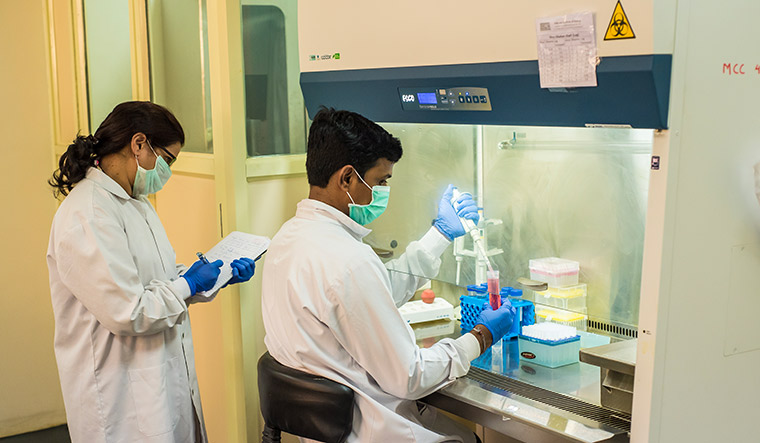India and the UK must learn from the model followed by the US on encouraging scientific research by allowing a free flow of people and ideas, one of India's leading scientific advisers has said.
Professor K VijayRaghavan, who has just completed his tenure as the Principal Scientific Adviser to the government of India, highlighted the issue during a virtual address at a UK-India Science and Innovation Partnerships dialogue at Imperial College London this week, along with Sir Patrick Vallance, Chief Scientific Adviser to the UK government.
Both our countries need to learn from America. America has succeeded because of its welcoming nature for ideas and immigrants from anywhere in the world," said VijayRaghavan.
The UK needs to, in my opinion, do this on a scale and in a manner which is distinct from its general policy on immigration. Talented people, the best and the brightest in the world, need to be able to come in and out very, very quickly; and if the UK needs to do this, India has to do this 100 times more, he said.
Vallance echoed the view, highlighting how the AstraZeneca and Serum Institute of India COVID-19 vaccine collaboration had resulted in people "right across the globe benefiting.
Science fundamentally rests on partnerships and Indian scientists have played an enormously important part in UK science, and have been crucial to the advances here, he said.
India today is firmly on the path to being a science superpower, he added.
The hybrid event on Tuesday brought together thought leaders from India and the UK to discuss and promote the crucial role of research, education and innovation partnerships in driving forward the Roadmap 2030, launched by Prime Ministers Boris Johnson and Narendra Modi to enhance bilateral ties across all sectors.
Our formal institutional engagements include the biennial UK-India Science and Innovation Council that usually sets the broad agenda for our cooperation, Indian High Commissioner Gaitri Issar Kumar said in her keynote address.
Pointing to the recent visit of Prime Minister Johnson to India, she flagged a broad range of collaborations, from civil nuclear and electric propulsion to earth system sciences and artificial intelligence (AI).
I would emphasise that our partnership in science and technology research and innovation should eventually bring outcomes that are most relevant not only for our mutual progress and prosperity but which also enable us to bring progress and prosperity to third countries through adaptable, affordable and accessible technologies that help to sustain healthier climate resilient societies, she said.
Lord Jo Johnson, Chairman of Access Creative and former Minister of State for Universities, Science, Research and Innovation, coordinated a panel discussion on the scientific partnership between the two counties, also involving Professor Mary Ryan, Imperial College Interim Vice-Provost (Research and Enterprise), and Professor Govindan Rangarajan, Director of the Indian Institute of Science (IISc) Bangalore.
The stars are aligning for very real progress for the UK-India relationship and in no area is this clearer than in science and education, said Jo Johnson, a former universities minister and younger brother of Prime Minister Boris Johnson.
Rangarajan urged political leaders to create an India-UK data exchange to share important data.
"This is crucial for the knowledge partnerships to thrive. We need a free data agreement, he said.
Imperial College London, which hosted the session as a celebration of its India ties, has 500 Indian students on the rolls and says in the last five years its academics have co-authored just over 1,200 research publications with partners at more than 300 Indian institutions.
Its research partners include the IISc Bangalore, All India Institute of Medical Sciences, Christian Medical College, Indian Institute of Technology Bombay, Indian Institute of Technology Kharagpur, the Bhabha Atomic Research Centre and the Tata Institute of Fundamental Research.





